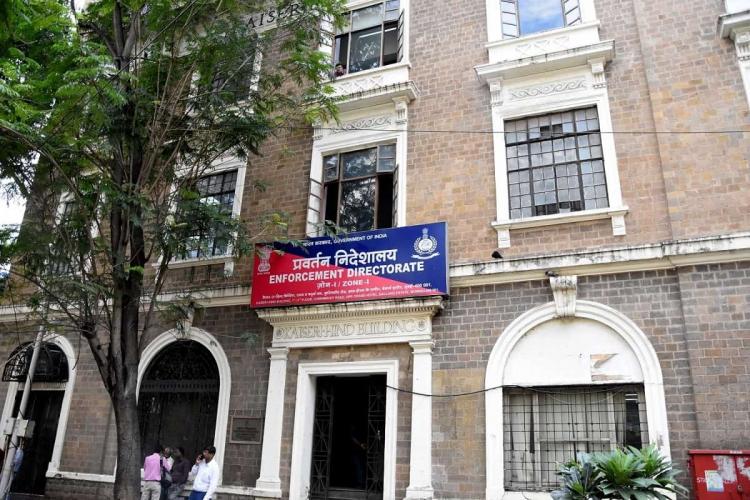On Wednesday, the Enforcement Directorate (ED) conducted search and seizure operations at 25 different sites across five states and Union territories. The operations were part of a forex violation investigation targeting multiple foreign registered online gaming companies or websites that operate within India, according to the agency.
During a Foreign Exchange Management Act (FEMA) investigation, the agency discovered that certain companies, established in small island nations, were being operated by individuals acting as proxies. These individuals had no connection to online gaming activities. The companies were found to be collecting funds and diverting them out of India under the pretense of importing goods or services.

According to the Enforcement Directorate (ED), remittances amounting to ₹4,000 crore have been identified.
On Monday and Tuesday, search and seizure operations were conducted at a total of eleven locations in Delhi, seven locations in Gujarat, four locations in Maharashtra, two locations in Madhya Pradesh, and one location in Andhra Pradesh. These operations targeted hawala operators and online gaming companies.
The individuals investigated include Ashish Kakkar, Neeraj Bedi, Arjun Ashwin Bhai Adhikari, and Abhijeet Khot, who are believed to be hawala operators. The authorities are also looking into the individuals and entities connected to them.
Online gaming companies or websites often establish their registrations in small island countries such as Curacao, Malta, and Cyprus. Surprisingly, these entities are associated with Indian bank accounts that are opened using proxy individuals unrelated to online gaming operations. The funds gathered from the public through these gaming websites undergo a convoluted process of being funneled through multiple bank accounts before being sent out of India. To facilitate this, the purpose of remittances is intentionally mis-declared, disguising them as payments for imported goods and services.
The probes have indicated that funds derived from horse racing and other games were being illicitly redirected, contravening the stipulations set forth in the FEMA, 1999.
According to ED, a significant number of companies have been established by influential individuals using their employees’ names as a cover to facilitate the transfer of approximately ₹4,000 crores in remittances through complex layering techniques, masquerading these transactions as payments for the import of goods and services.
The agency stated that during the investigation, numerous PAN cards and Aadhar cards were discovered to have been utilized in the establishment of these firms. Additionally, mobile devices that were employed to operate bank accounts for these entities, along with office stamps, were seized. The individuals in key positions were found to be utilizing international virtual mobile numbers to communicate via instant messaging applications like WhatsApp, Telegram, Signal, and others. Furthermore, they employed pseudonyms such as Pablo, John, Watson, and more to conceal their true identities.
To evade interception by investigating agencies, the accused individuals reportedly utilized remote-based servers and laptops via remote access applications such as Any Desk and Team Viewer, as stated by the Enforcement Directorate (ED).
The Enforcement Directorate (ED) has made significant discoveries during its investigations, uncovering damning documents and electronic devices that provide evidence of large-scale foreign outward remittances. These remittances, amounting to thousands of crores, were obtained from the public through gaming websites. The funds were funneled through dummy firms, which were opened using the identities of proxy individuals without connection to the gaming activities. In addition to the incriminating evidence, the ED seized ₹19.55 lakhs in cash and US $2,695. Moreover, they froze 55 bank accounts associated with these firms, which were being utilized to layer and transfer the income generated from online gaming. The transfers were disguised as remittances related to the import of goods and services.













